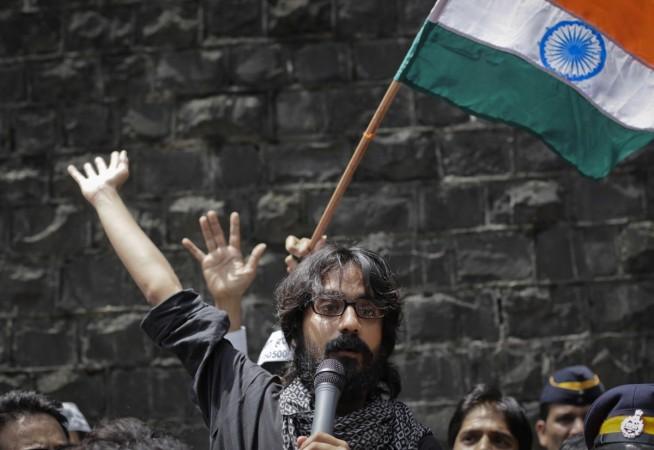
I needed to think more than multiple times before I decided to write this piece because I am not William Wirtz. I originate from a region where the freedom of thought and expression is not as free as it is in Bill's world.
But yet, I thought it is important to pen the thoughts even if they fall short of Bill's expectations.
Let me introduce Bill here. The man, who I met at the European Journalism Institute in Prague recently, is an excellent young journalist from Luxembourg, a country may be equal in size to one of our booming cities in India. He calls himself a "free marketer" and is the editor-in-chief of SpeakFreely.today who also writes on various platforms that promote liberty. Bill is quite straight when it comes to presenting his pro-freedom ideas, even to the extent of agreeing to secessionism.
Now, that is quite a dangerous stand to take in these parts of the world. My friend from Luxembourg posted a piece on FreedomToday Network on Wednesday, August 2, headlined 'Let Bavaria Secede'. In it, he has said that the secessionists in the German province of Bavaria are getting stronger and there is no reason to believe that if the performing state of Germany became a separate country, it could not rule itself.
Bill argues that centralising tendencies contradict localism which means people's lives are governed by strangers who they never meet, causing much inconvenience to their day-to-day life by means of "ineffective lawmaking".
This is the basic argument of democracy that it needs to be as decentralised as possible so that people do not feel caged by the whims of somebody distant and unknown. Bill's article on Bavaria had its share of critique but what was good to see that people had an exchange of opinions, in favour or against of an imaginary Bavarian secession. There were arguments on both sides and no hurling of shoes.
But this imagination holds a lot of significance when one is discussing freedom. In India, how much do we care for an open discussion on freedom and even, if I may go to the extent, of equating a secession with freedom? The imposing State and its agents will not forgive anybody indulging in such 'blasphemy'. We love to be statists and nationalists in India and shut in the process, the possibility of improving our overall meaning of life through debate and discussion and experiments with truth. The very essence of freedom is negated in some way or the other.
In the developing world, 'secessionism' is a curse word though 'partition' is not. It is always better to gain an upper hand to execute a divisive border than allow somebody seeking freedom to do it. A border is an extremely important ingredient for the crisis-hit rulers of the developing world for it stiffens their authority (hence centralism) to generate a hollow loyalty from the subjects.
Nations make border and then that border feeds the State's insatiable hunger for nationalism to win more loyalty. Freedom, justice and equality are still aimed for but as the State's own gifts for its citizens and not something that can be attained through a bottom-up revolution. This conditioning of the pillars of a democracy makes a genuinely free society elusive. Talking like Bill Wirtz becomes all the more difficult.
India still is a country with a better record of freedom than many other lands under the sun. But yet we need to travel some distance before we can start thinking like Bill, yes at least think. This is not to say that free market is a perfect system but it is certainly a system which can be experimented with while striving for the better. To accomplish that, however, we need to think on individualistic lines, something people in the West are doing it over the generations, and not allow ourselves to get eclipsed by a 'political factionist' thinking which is, in most cases, are unethical and opportunist.
Perhaps, we are yet to understand the characteristics of nation-states since we are more state-nations and surrender individual aspirations at the altar of the supreme State. But whatever be the reason, India's own political thinking needs to upgrade itself on various counts to find solutions to many of its problems.


![Too drunk to walk? Karnataka to drop heavily intoxicated revellers home, sets up rest centres for New Year crowds [Watch] Too drunk to walk? Karnataka to drop heavily intoxicated revellers home, sets up rest centres for New Year crowds [Watch]](https://data1.ibtimes.co.in/en/full/826552/too-drunk-walk-karnataka-drop-heavily-intoxicated-revellers-home-sets-rest-centres-new-year.png?w=220&h=135&l=50&t=40)


![Too drunk to walk? Karnataka to drop heavily intoxicated revellers home, sets up rest centres for New Year crowds [Watch]](https://data1.ibtimes.co.in/en/full/826552/too-drunk-walk-karnataka-drop-heavily-intoxicated-revellers-home-sets-rest-centres-new-year.png?w=220&h=135)


